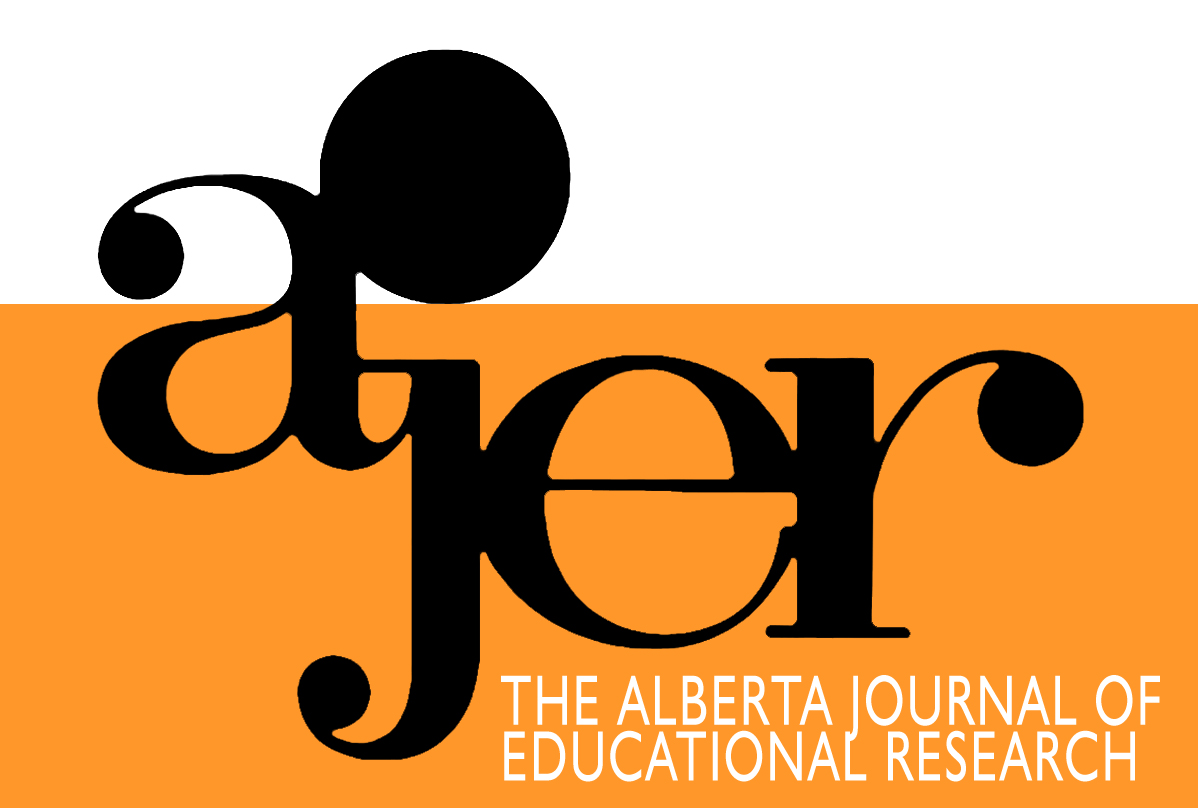Creating and Sustaining Safe and Inclusive Spaces for LGBTQ Youth: An Exploratory Investigation of the Role of Educational Professionals
DOI:
https://doi.org/10.55016/ojs/ajer.v68i1.70273Abstract
Educators can play a critical role in buffering LGBTQ youth from potential victimization. As such, the present study explored the following questions: 1) What are the roles of educators (i.e., teachers, school administrators) with respect to promoting and creating safe and inclusive spaces for LGBTQ youth; 2) what unique contributions can educators make in nurturing those spaces; and, 3) what barriers do educators face in creating safe and inclusive spaces for LGBTQ youth? This study used a convergent parallel design mixed-methods approach. Descriptive statistics were gathered from survey results; the interview data was analyzed using thematic analysis in order to generate themes relevant to the research questions. Discussion focuses on the roles of educators and the barriers with respect to providing safe and inclusive spaces for LGBTQ youth. The paper concludes with empirical and practical implications of the study.
Key words: LGBTQ, teachers, administrators, support, advocacy
Les professionnels de l’éducation peuvent jouer un rôle essentiel en protégeant les jeunes LGBTQ d'une victimisation potentielle. Ainsi, la présente étude s'est penchée sur les questions suivantes : 1) Quels sont les rôles des professionnels de l’éducation (c'est-à-dire des enseignants et des administrateurs scolaires) en ce qui concerne la promotion et la création d'espaces sûrs et inclusifs pour les jeunes LGBTQ ? 2) Quelles contributions uniques les professionnels de l’éducation peuvent-ils apporter à la création de ces espaces ? 3) Quels obstacles les professionnels de l’éducation rencontrent-ils dans la création d'espaces sûrs et inclusifs pour les jeunes LGBTQ ? Cette étude a utilisé une approche mixte de méthodes convergentes et parallèles. Des statistiques descriptives ont été recueillies à partir des résultats de l'enquête ; les données des entretiens ont été analysées à l'aide d'une analyse thématique afin de générer des thèmes pertinents pour les questions de recherche. La discussion porte sur les rôles des professionnels de l’éducation et les obstacles à la création d'espaces sûrs et inclusifs pour les jeunes LGBTQ. L'article se termine en présentant les implications empiriques et pratiques de l'étude.
Mots cles: LGBTQ, enseignants, administrateurs, soutien, plaidoyer
Downloads
Published
Issue
Section
License
UNIVERSITY OF ALBERTA COPYRIGHT LICENSE AND PUBLICATION AGREEMENT
If accepted, authors will be asked to sign a copyright agreement with the following points:
A. Where there is any inconsistency between this Copyright License and Publication Agreement and any other document or agreement in relation to the same subject matter, the terms of this Agreement shall govern.
B. This document sets out the rights you are granting in relation to publication of your article, book review, or research note entitled (the “Article”) through inclusion in the academic journal titled Alberta Journal of Educational Research (the “Journal”) published through the Faculty of Education, representing the Governors of the University of Alberta (the “Journal Editor”).
C. There will be no payment to you for this publication and grant of rights. In consideration of the agreement to publish the Article in the Journal:
1. You are warranting that:
- the content of the Article is your original work, and its content does not contain any material infringing the copyright of others; or, where the Article is not entirely your original work, you have obtained all necessary permissions in writing to grant the rights you are giving in this agreement;
- the content of the Article does not contain any material that is defamatory of, or violates the privacy rights of, or discloses the confidential information of, any other person;
- the Article has not been published elsewhere in whole or in part, and you will not allow publication of the Article elsewhere without the consent of the Journal Editor;
- the names of all co-authors and contributors to the Article are:
2. You agree to license the copyright in the Article to the Journal Editor, on a worldwide, perpetual, royalty free basis; and to the extent required by the terms of this agreement. You shall retain the right at all times to be acknowledged as the/an author of the Article.
3. You further agree that the Journal Editor has the entitlement to deal with the Article as the Journal Editor sees fit, and including in the following manner;
- The right to print, publish, market, communicate and distribute the Article and the Journal, in this and any subsequent editions, in all media (including electronic media), in all languages, and in all territories, ing the full term of copyright, and including any form of the Article separated from the Journal, such as in a database, abstract, offprint, translation or otherwise, and to authorize third parties to do so;
- The right to register copyright of the Journal;
- The right to edit the Article, to conform to editorial policy as the Journal Editor sees fit.
4. If any co-author or contributor to the Article does not sign this agreement, the Journal Editor reserves the right to refuse to publish the Article.



